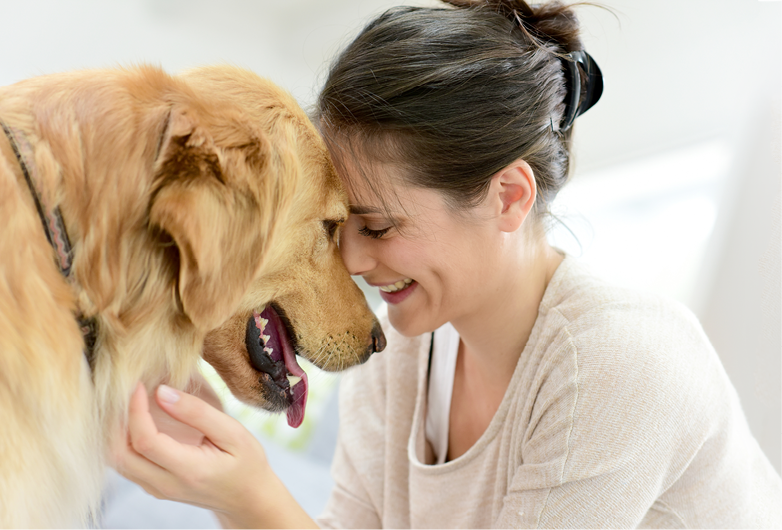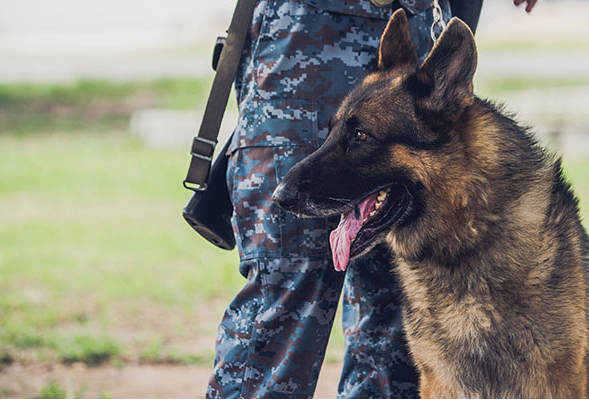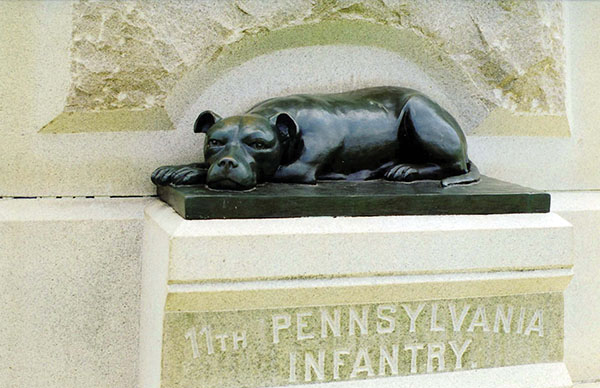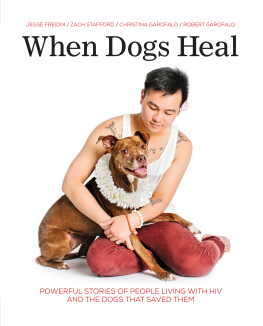Chapter 1: Loyalty
We long for affection altogether ignorant of our faults. Heaven has accorded this to us in the uncritical canine attachment.
George Eliot

One of the benefits of writing and speaking about dogs is that other dog lovers send a steady stream of articles, book references, and links to stories on the Web about dogs. A great many of these articles and stories relate to how much we appreciate the loyalty that dogs show toward humans. If you conduct a Google search on the term dog loyalty, you will get more than 28 million hits, covering everything from which breeds are most loyal to true stories of dogs loyalty to cartoon drawing depicting loyal dogs. Sometimes, the loyalty of dogs is demonstrated in home videos of dogs who are wildly excited at the return of owners who have been serving overseas with the military for extended periods of time. Other videos and articles take a more somber tone and profile dogs who have stayed at the side of their deceased human or canine companions for hours, days, weeks And, of course, there are many stories about dogs who have demonstrated their loyalty by rescuing individuals or entire families from dangerous situations, such as home fires or gas leaks, or protected their owners from poisonous snakes, burglars, or attacks by other animals.

Civil War Dog
We have found that when we speak with groups, it is not uncommon for individuals to approach us before or after a lecture to share stories. On one memorable occasion, a woman shared a link to the story of Sallie, a brindle Bull Terrier who served as the mascot for the 11th Pennsylvania Volunteer Infantry Regiment during the American Civil War. Sallie was given to the captain of the regiment when she was only five weeks old. As you might guess, in a situation where training for war was the primary focus of the troops, Sallie provided a welcome distraction to both the captain and the soldiers. Having served his time in basic training, Garry can empathize with how much the soldiers would have enjoyed having a cute puppy to play with, hold, and feed during those trying times.
As we all know, dogs are keen observers of human behavior and easily learn our routines. It should come as no surprise that, as the regimental mascot, Sallie learned to recognize the drum roll for reveille and was always the first out of the tent to attend roll call with her natural puppy enthusiasm. During marching drills, she would latch on to a particular soldier and prance alongside him during the exercises. When the troops performed a dress parade, she would station herself beside the regimental flag. At night, she slept in the captains tent after strolling through the camp on an inspection of her own.
The 11th Pennsylvania saw its first action at Cedar Mountain, in 1862, and Sallie remained with the regimental flag throughout the entire engagement. Other major engagements followed at Antietam, Fredericksburg, and Chancellorsville. At each, Sallie would race around the front line, barking ferociously at the enemy.
Occasionally, in between battles, a visiting dignitary would arrive, requiring the troops to march in a formal pass and review. In the spring of 1863, Sallie was marching with the regiment past the reviewing stand, which included a tall man with a stovepipe hat. That distinguished guest was none other than Abraham Lincoln, who, with a twinkle in his eye, raised his hat in salute to the regiments mascot.
On the first day of fighting at Gettysburg, the 11th Pennsylvania was one of the first units engaged with the Confederates and, after a fierce fight, was driven back from their position on Oak Ridge and into town. During the chaos, Sallie became lost. She was found three days later by a soldier from the 12th Massachusetts. Sallie had found her way back to the regiments original position on Oak Ridge and was standing guard over the bodies of her dead compatriots. Even though she was both hungry and thirsty, Sallie had stayed with the fallen troops.
Following the battle of Gettysburg, Sallie continued to serve in fight after fight. On February 6, 1865, the 11th Pennsylvania made a resolute attack upon the rebel lines at Hatchers Run. As always, Sallie was in the first line of attack. Men in the second wave were advancing under heavy fire when they came upon the body of Sallie, who had been shot and killed. While still under fire from Confederate forces, the men of the 11th Pennsylvania buried Sallie where she had fallen on the battlefield.
However, the story does not stop there. In 1890, the surviving members of the 11th Pennsylvania Volunteer Infantry dedicated a monument on the Gettysburg battlefield to all of the men who had fought and died during that great battle. If you enter the search terms Sallie and Gettysburg, in your Internet browser, you should find the monument, which features a Union soldier looking out over the fields in the direction from which the rebels came. But, there is something else on the monument that many visitors do not see unless they get out of their cars and walk around to the front. The soldiers of the 11th Pennsylvania ensured that a bronze likeness of Sallie was included at the base of the monument. Sallie was so loyal that her soldiers insisted that she be remembered on their monument for all time.

Why Is Loyalty Important?
When we share the story of Sallie with groups of people or show them videos of a dog wiggling and jumping in wild abandon at the return of a long-lost owner, these people are often visibly moved. This raises an important question: why does the story of Sallie and the soldiers touch us so? Why did battle-hardened soldiers who had seen and lived through all manner of death, illness, and horrible conditions insist on including a dog on their monument? Why does it touch our hearts to see a dogs unabashed joy at being reunited with his owner? For those of us who have a dog, why is it so pleasurable to return home and be greeted with such elation? Why is loyalty so important to us?
To answer this question, lets begin by simply looking at how the word loyalty is defined. Definitions from various sources use words such as faithfulness, devotion, and attachment. Garry posed this question to his wife, Lauren, and she replied, Thats simple. People like certainty in relationships. Being loyal means you know you can count on others to be true to you and do the right thing even if it is difficult and even if you are not physically present.
Note that her definition includes two very important elements. First, a critical part of loyalty is that you feel confident that another person will be true to you and do the right thing. Second, a loyal person will be true to you and do the right thing even when you are not present. If you think about someone you do not feel is loyal, we are willing to bet that a big part of the reason is that you have little confidence that he or she will represent you well and stand up for you when he or she should. Dogs, on the other hand, are consistently loyal to their loving family members no matter the situation.
People offer a number of suggestions as to why dogs are so loyal. Some suggest dogs are loyal only because they depend on us for food and shelter. From this point of view, dogs are loyal only because they have to be. However, we need look no further than our canine companions to see that real loyalty is alive and well. In our dogs, we see daily and consistent examples of loyalty at its finest.
Next page












